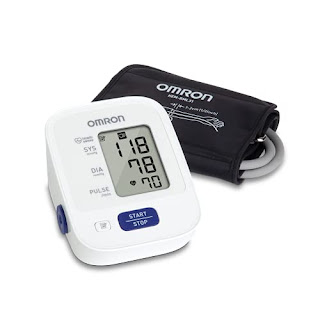INSTALLMENT #1 IN SERIES
Continuing my series about health crises that begin in your 50s, I'm going to discuss the thing we intellectually know but perhaps haven't yet applied to our own conditions - weight.
In this photo below, I was considered obese on BMI scale. Now, I'm 5'8" and athletically built with a medium-to-large frame, but there was no disputing up close that I carried a lot of belly fat and arm fat. That increased volume creates higher BP and sets one up for diabetes, as well as inflammation from the excess body fat.
We go about our days doing what we always did and don't think about what might be lurking under the surface. Maybe we say, "I'll see the doctor when I lose the weight so he doesn't nag me," or we bypass the BP machine in the drugstore because we figure if our BP is up, we are still doing just fine without any symptoms, so it can't be all that bad.
Body fat, especially belly fat, is the single greatest risk factor for disease. You could get away with it when younger, but by the 50s, the numbers start revealing elevated fasting blood sugar and higher BP numbers.
And, whether we like to hear it or not, every pound off we get better numbers. As little as 10% body fat loss can have a great affect on these numbers and your risk factors.
In fact, it was reported that 78% of covid sufferers who ended up in the ER were overweight. The risk factors for being overweight and having covid are tremendous. It has that much impact on all your body functions.
The amazing thing is there are some diseases we have no choice over having like seizure disorder, multiple sclerosis, or rheumatoid arthritis, but there are some that we have absolute control over.
When you can find the control you have in your health, it's time to exercise it (serenity prayer above).
KNOW YOUR NUMBERS
Ideal blood pressure is considered to be between 90/60mmHg and 120/80mmHg. high blood pressure is considered to be 140/90mmHg or higher. low blood pressure is considered to be 90/60mmHg or lower.
Ideal amount of sugar grams per day - less than 24 g.
EXERCISE
I really learned with the Bell's palsy to stop the ride and get off and simply reduce stress to almost zero. It allowed me to realize my true hunger cues versus my "eating opportunity" signal that was saying things like, "hurry and eat while you can," "order out as I'm too stressed to cook," and the like. Stress and eating go hand-in-hand. You can look at a person and often see how much stress they are undergoing by the amount of belly fat they carry.
EATING WITH A NEW ATTITUDE
I am conscious now that I slowed down my stress levels and am moving at a normal pace, that the speed with which I eat had a GREAT DEAL to do with weight gain. I now eat off a dessert plate. If I make a sandwich with whole grain bread, I cut it in half, put half in saran wrap in the fridge and eat one half. I eat it very slowly. I nibble. I lay it down between bites. When I'm done, I'm satiated and I save the other half for later in the day in case I get hungry. Instead of eating to store up for a long haul and hitting your body with a blood sugar rush and a large meal, spread out your calories and don't stress the body too much with a pile in your gut that takes hours to digest and affects your blood pressure, fat storage, and blood sugar.
Get healthy fats. I have made an avocado a day part of my diet, as well as using coconut oil in my hot tea. Sometimes, I munch on some walnuts. Do what you can to grease the body a wee so that things work right and your body does its functions properly.
Supplements such as Omega-3 are a really great preventative to your regimen. Here's just some benefits -
Omega-3s Can Fight Depression and Anxiety. ...
Omega-3s Can Improve Eye Health. ...
Omega-3s Can Promote Brain Health During Pregnancy and Early Life. ...
Omega-3s Can Improve Risk Factors for Heart Disease. ...
Omega-3s Can Reduce Symptoms of ADHD in Children.
obese BMI








Comments
Post a Comment